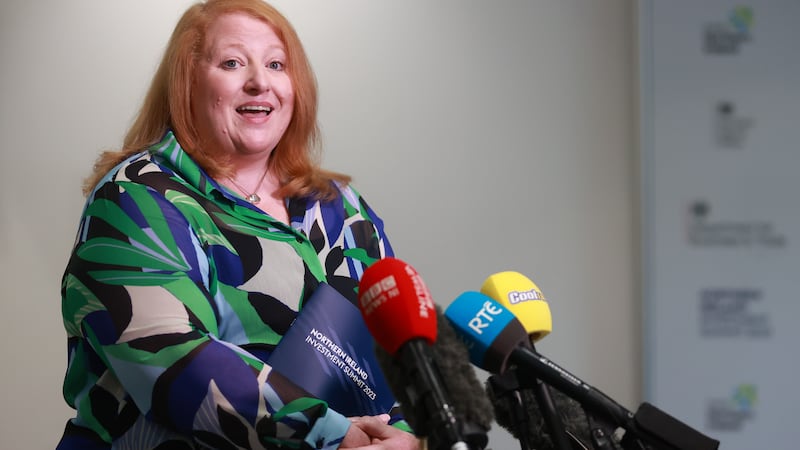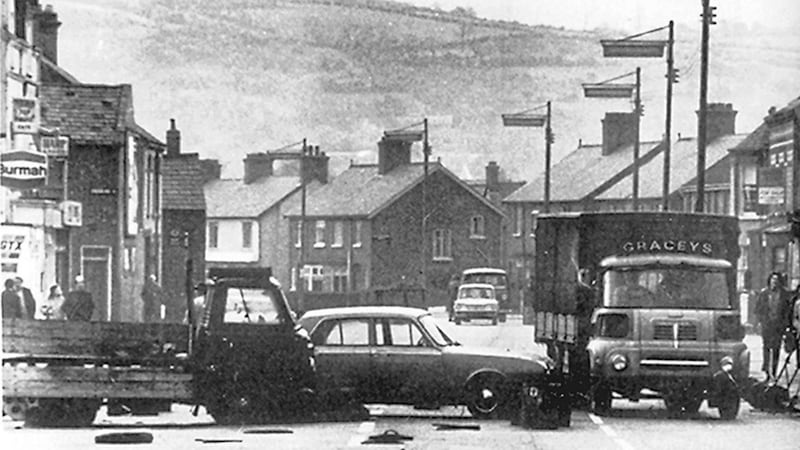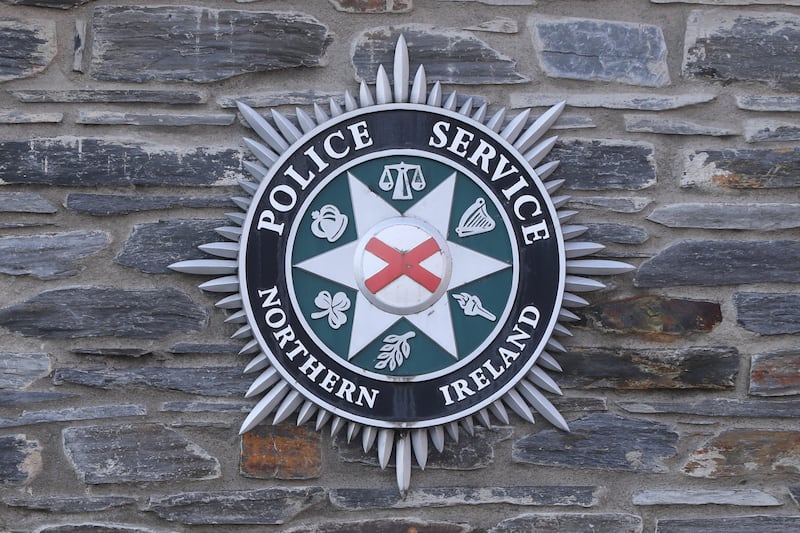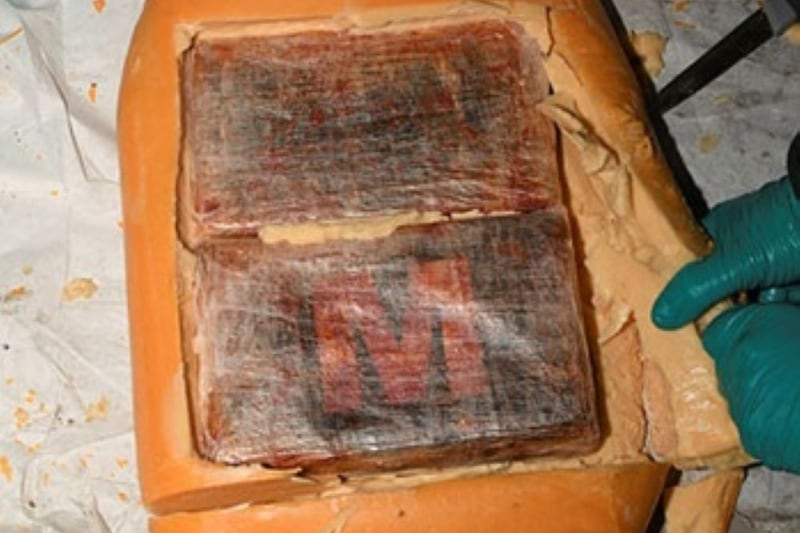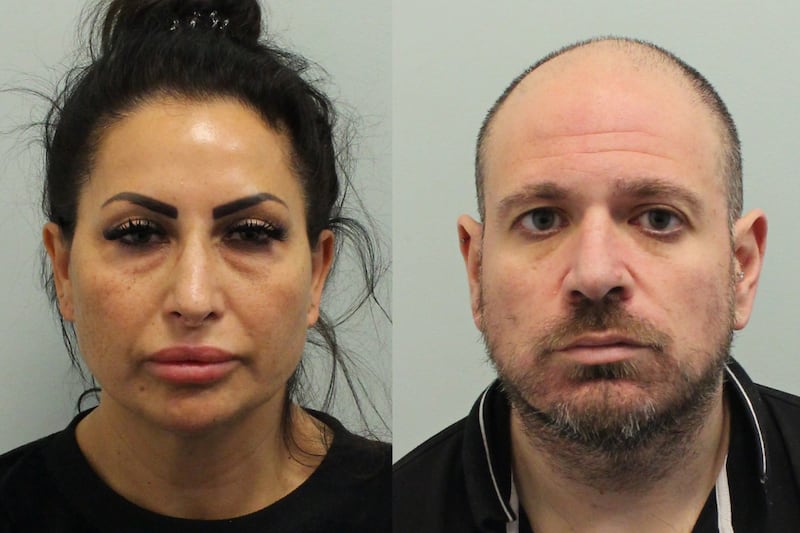Police have been asked to urgently assess the scale of drink spiking at nightclubs and parties amid a rise in reports and claims some people have been drugged by injection.
Home Secretary Priti Patel has asked forces for an update after some said they had seen more spiking incidents in recent months.
It comes as police in Derry have issued an appeal for anyone who believes they had their drink spiked while out in the city centre last weekend to contact them.
Officers responded to one incident in Foyle street last Saturday.
One teenage girl, who believed that her drinks had been spiked, was taken to hospital in an ambulance.
Police chiefs have also been tasked by the Commons Home Affairs Committee to urgently provide more information on their assessment of the scale of the problem after reports of incidents in several parts of the country, including Nottingham, Scotland and Northern Ireland.
Groups from more than 30 universities around the UK have joined an online campaign calling for the boycott of nightclubs, with campaigners seeking “tangible” changes to make them safer, such as covers/stoppers for drinks, better training for staff and more rigorous searches of clubbers.
A petition launched last week to make it a legal requirement for nightclubs to thoroughly search guests on entry has already gained more than 120,000 signatures.
Sinn Féin Foyle MLA Ciara Ferguson expressed concern following reports that a number of people socialising in Derry city centre at the weekend had their drinks spiked.
Ms Ferguson said: “Reports that a number of people socialising in our city centre had their drinks spiked is extremely worrying.
“We are now heading into to the very busy Halloween and Christmas period which will see a large influx of people into entertainment venues and bars in our city and its very sad that in today’s society we have to warn people about the dangers of drinks being spiked.
“Adding alcohol or drugs to someone's drink, commonly known as drink spiking, has become an increasingly worrying trend in recent years and very often the unsuspecting victim will not be aware until it is too late."
It comes as a University of Nottingham student told how she believes she was spiked with an injection during a night-out with friends.
Zara Owen, 19, from Surrey, said she blacked out soon after arriving at a venue last Monday, telling BBC Breakfast: “I know I didn’t drink as much as I usually would on a night-out this night, and the fact that I don’t remember anything is terrifying for me because this is something that is a very rare occasion to me.
“I’ve never suffered with memory loss and then the next morning … I woke up with a really painful leg.
“I found a pin prick in my leg which was the epicentre of all pain. It made me unable to walk and I was limping around.
“As a young person who’s at university, I’m hearing stories of people who have been to nightclubs and they have been injected. I have heard stories of someone having it through their hand or through their back, so this kind of gave me an idea this had happened to me.”
Nottinghamshire Police said it has seen a rising number of reports of spiking over recent months and has arrested a man as part of a wider operation.
Superintendent Kathryn Craner, of Nottinghamshire Police, said: “Over the last few months we have seen an increase in reports where people believe that drugs may have been put in their drink … But we’ve also received a small number of reports where people are telling us, as Zara has, that this has been associated with a pain or a mark on a part of their body, scratching sensation, and as though they have been physically spiked.”
The University of Nottingham said it was “extremely concerned” by the reports and was working with police and venues to “monitor, review and learn from incidents and experiences in the city centre”.
Police Scotland is also looking into similar reports. A spokesman said: “Officers are carrying out inquiries and a small number of reports from the Edinburgh, Dundee and Glasgow areas are being investigated. These do not appear to be linked.”
Larissa Kennedy, president of the National Union of Students (NUS), said: “It’s absolutely disgusting that in the past few days a number of students have reported instances of women being spiked on nights out.”
Sarah Crew, temporary Chief Constable for Avon and Somerset Police who leads the National Police Chiefs’ Council’s (NPCC) work on rape and adult sexual offences, told the Commons Home Affairs Committee on Wednesday: “In terms of the injection spiking, I only became aware of that this morning so I know about the reports …
“I think it’s a fair assumption there may be a sexual motive in those, but there isn’t an indication.”
It is “difficult to make an assessment on that particular trend at the moment, in terms of the more general drink spiking we do know that that’s a problem,” she added.
Spiking drinks can lead to up to ten years in prison – or even higher if other offences like rape, robbery or another assault has taken place.

